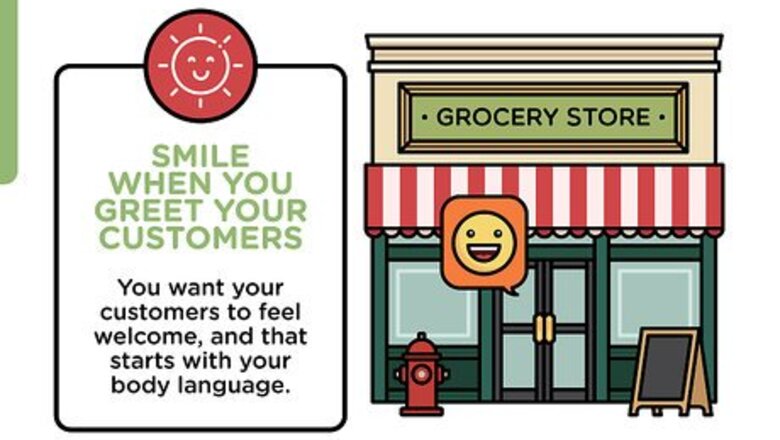
views
X
Research source
The proper greeting, on the other hand, will make customers feel welcome and valued. Knowing how to act when greeting customers and what to say can increase both sales and customer loyalty.
Acting Friendly and Professional
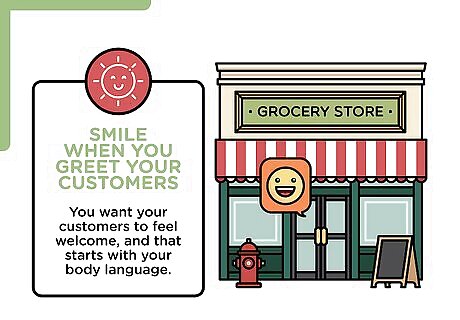
Smile when you greet your customers. You want your customers to feel welcome, and that starts with your body language. Stand tall, smile, and approach them briskly. Everything about your manner should say “I’m glad you’re here!”
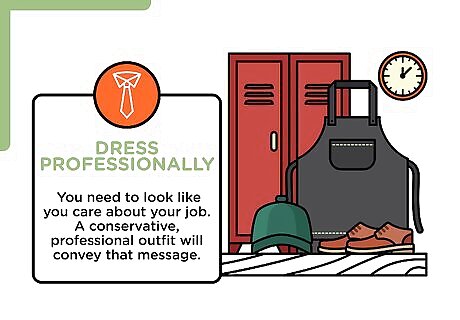
Dress professionally. How you look is a key part of your greeting. You need to look like you care about your job. A conservative, professional outfit will convey that message. Unless you work in a store with a specific dress code that states otherwise, avoid provocative clothing that might offend customers or make them feel uncomfortable.
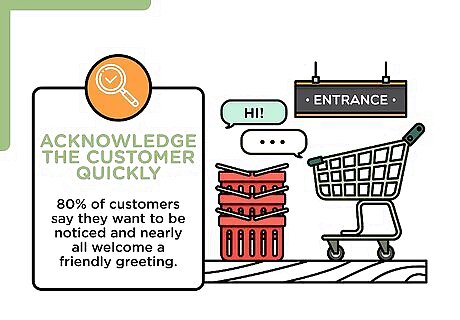
Acknowledge the customer quickly. 80% of customers say they want to be noticed and nearly all welcome a friendly greeting. You don’t have to greet each customer right away, but you do need to acknowledge him or her with eye contact and a smile. If stocking shelves or working in the back, stop to greet a new arrival. At the very least, tell her you will be with her shortly. Studies show that customers are much happier waiting if they have been greeted first. If serving another customer, ask him if he minds if you quickly greet the new arrival before you do so. Use a bell on the door to let you know when new customers have arrived, so that you can be sure to greet them promptly. Try to greet incoming customers within 30 seconds.
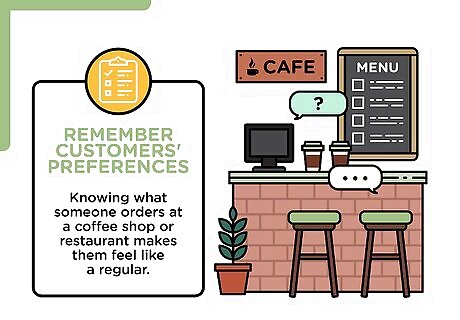
Remember customers' preferences. It pays to remember frequent customers’ likes and dislikes. Knowing what someone orders at a coffee shop or restaurant makes them feel like a regular. If you work at clothing store, remembering that a customer loves pink or is fond of a certain brand will make her feel like you care. Personal attention like this is a great way to create customer loyalty.
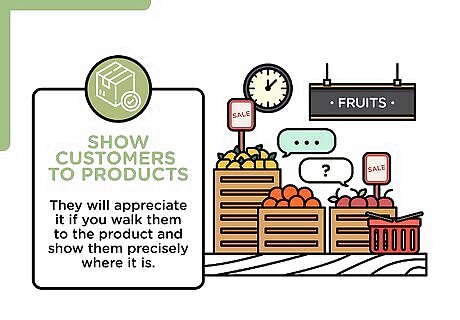
Show customers to products. Don’t just tell them where to look for what they want. They will appreciate it if you walk them to the product and show them precisely where it is.
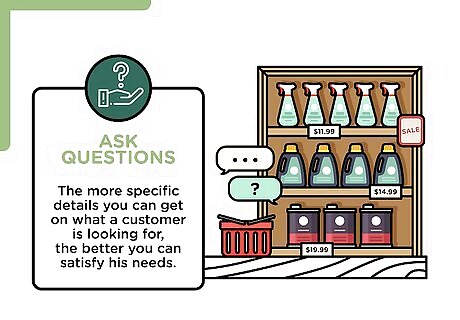
Ask questions. The more specific details you can get on what a customer is looking for, the better you can satisfy his needs. If at a nutrition store and looking for protein powder, you might ask if he is trying to lose weight, built muscle, or tone. Does he want something for after workouts or to stave off hunger? If a customer is looking for shorts at a clothing store, you might ask about how formal or the type of fabric. Questions show you care.
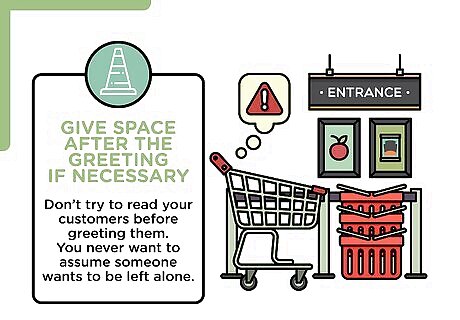
Give space after the greeting if necessary. Don’t try to read your customers before greeting them. You never want to assume someone wants to be left alone. Always greet an arriving customer warmly, but if she responds coldly or not at all, tell her you will be nearby if they need help and give them space.
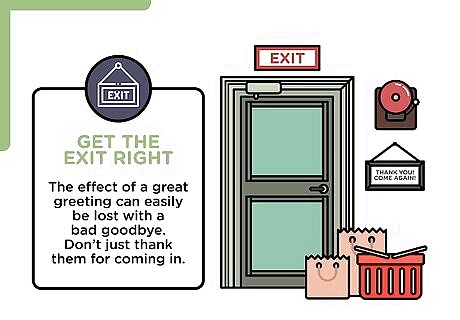
Get the exit right. The effect of a great greeting can easily be lost with a bad goodbye. Don’t just thank them for coming in. Walk customers to the door and open it for them. Ask anyone who looks like they could use a hand – older customers, pregnant people, parents wrangling their children – if he or she would like help carrying their packages to the car.
Knowing What to Say
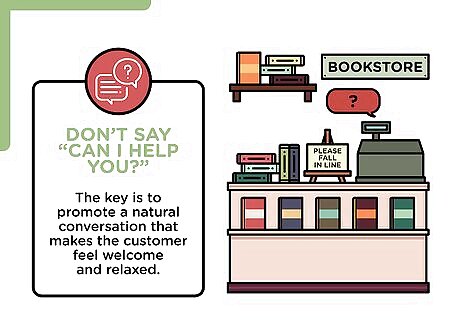
Don’t say “Can I help you?” This is a standard greeting that simply does not work. Usually, the answer is “no, just looking.” You’ll usually get a similar response – “just looking” – If you ask customers if you can help them find something. And don’t start off with a canned speech, either. The key is to promote a natural conversation that makes the customer feel welcome and relaxed.
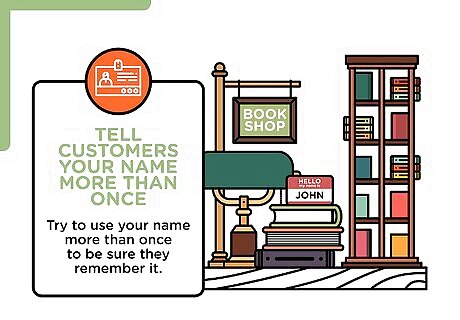
Tell customers your name more than once. You want customers to know your name if they need something. Giving them your name also transforms you from a faceless employee to a person they can feel comfortable with. Try to use your name more than once to be sure they remember it.
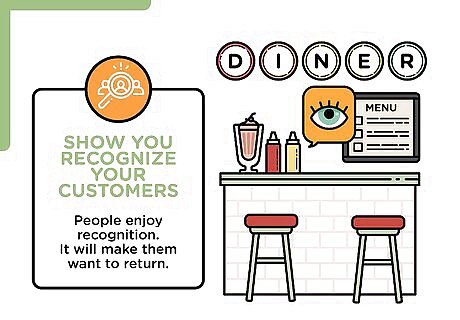
Show you recognize your customers. If it is a frequent customer, you should greet him by name. “Jack! Welcome back!” Hearing one’s own name stimulates specific regions of the brain that makes people listen more closely to whatever comes next. If you don’t remember his name, at least let him know you remember them: “Hi! Nice to see you again!” People enjoy recognition. It will make them want to return.
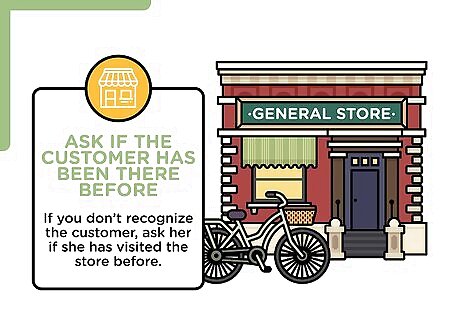
Ask if the customer has been there before. If you don’t recognize the customer, ask her if she has visited the store before. This greeting has been shown to increase sales by up to 16%. If she has been there, ask what she bought and if she liked it. This gives the opportunity for positive reinforcement or to address concerns. If she has not been there before, offer to show her around the store.
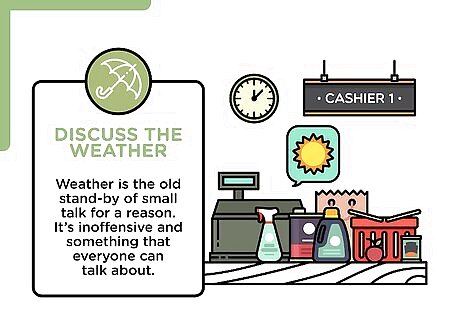
Discuss the weather. Weather is the old stand-by of small talk for a reason. It’s inoffensive and something that everyone can talk about. Be sure to listen to your customer’s responses and reply appropriately. The key is to foster a natural conversation in order to put customers at ease, making them more likely to buy.
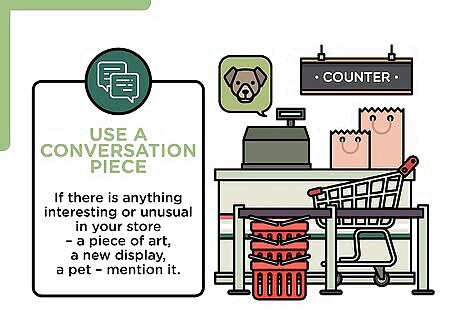
Use a conversation piece. If there is anything interesting or unusual in your store – a piece of art, a new display, a pet – mention it. Anything that gets a customer relaxed and talking will help sales.




















Comments
0 comment